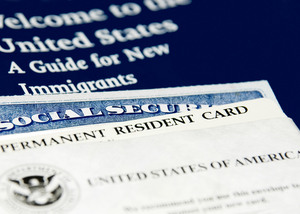 There are different legal pathways to become a US resident: through work, investment, or even for having been a victim of a crime; but the most common, easy and quick method (depending on the degree of family relationship) is through a relative that is US resident or citizen (USC). This is a right that the US resident or citizen has under US law to file a petition for an alien with the US Citizenship and Immigration Services, so this alien can enter the US as a legal permanent resident, and later even become US citizen.
There are different legal pathways to become a US resident: through work, investment, or even for having been a victim of a crime; but the most common, easy and quick method (depending on the degree of family relationship) is through a relative that is US resident or citizen (USC). This is a right that the US resident or citizen has under US law to file a petition for an alien with the US Citizenship and Immigration Services, so this alien can enter the US as a legal permanent resident, and later even become US citizen.
As with every government process, certain requirements must be fulfilled before being approved. For example you are often required to be on a wait list until your “priority date is current” and it is your turn to go before a consular officer for an interview and for a background check of your immigration record in the US and even your criminal record, in order to demonstrate to the US government that you do not have grounds of inadmissibility and that you are not a risk to national security.
Something important to note is that the wait time depends entirely on your family relationship with the relative that petitions you and the current processing times within immigration itself.
As we mentioned, the petitioner must be a US citizen, or at least a US resident. For the majority of cases where the petitioner is the spouse you will face an important question: How did you meet, where did you get married, and what was your immigration status in the US during this time? Sometimes your circumstances, such as having had unlawful presence in the U.S., may create a ground of inadmissibility (temporary or permanent, depending on your immigration violations). For this particular case, you can submit an immigration waiver for a deportation or your unlawful presence in the United States. (Each case is unique, and grounds of inadmissibility may be different for each one).
There is an exception for the immigration waiver (waiver I-601 and I-212), for those who have filed a family petition on or before April 30, 2001, or those who entered with a valid visa and overstayed the time granted (I-94).




